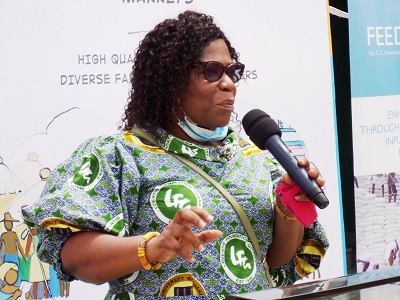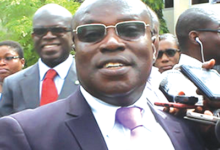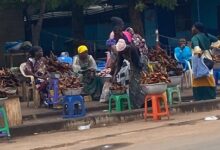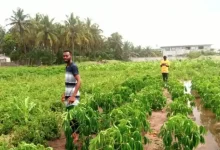
The Dean of the School of Agriculture at the University of Ghana, Professor Irene Susana Egyir, has called on the government to allocate adequate funds to address the infrastructural deficits in the agriculture sector of the country.
She said the funds should be channelled in developing the deplorable roads linking most of the farming communities, provide adequate and affordable energy to power agricultural machineries, and as well as provide proper irrigation system to boost the production of higher quality foods.
Professor Egyir said this yesterday in Accra, at the 20 years celebrations of the International Fertilizer Development Centre (IFDC) themed “20 years developing agriculture from the grounds up.”
IFDC promotes local economic development by increasing food and agriculture productivity through effective and environmentally sound crop nutrient, technologies and agriculture expertise using a bottom-up approach.
She said although Ghana had good policies and programmes that targeted the development of the agriculture economy, there was the need to develop the local economy by addressing the infrastructural challenges associated to the sector.
Professor Egyir said since the private sector was incapable of raising the necessary funds to improve the infrastructure development in the farming communities, the government support was keen as the sector was the backbone of most economies in the world.
She added that farming had become a knowledge-based approach and therefore, players in the sector needed to educate the people on how to use the right method that had the capability to improve yields.
The Regional Director for North and West Africa of IFDC, Mrs Oumou Camara, said among the many goals of IFDC was to significantly boost food production by eliminating wastage and destruction of agricultural water, land, seeds and fertilizer.
She said IFDC had empowered chunks of smallholder farmers to become agricultural entrepreneurs to enable them to actively engage in the local and regional agricultural trade.
The Co-ordinator for Fertiliser Research and Responsible Implementation (FERARI), Mr Williams Atakora, said the main challenge in the fertiliser value chain was fertiliser recommendations for specific crops and soil.
He said this was due to weak manufacturer, research, and farm linkages and the presence of poor quality products in the system.
BY BERNARD BENGHAN & CECILIA LAGBA








